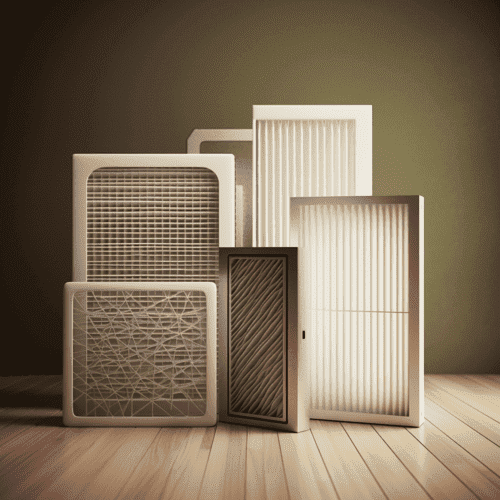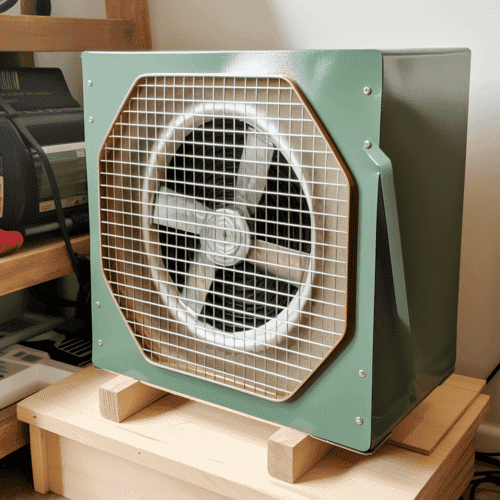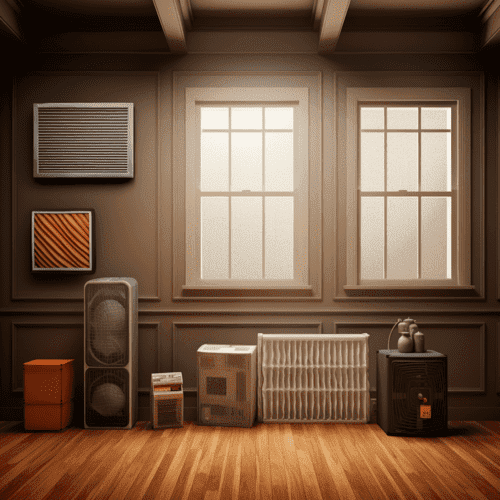
During the summer months, the interior of British Columbia - and much of Western Canada - experiences frequent forest fires, resulting in prolonged periods of smoky conditions. As smoke particles permeate the air, it becomes crucial to take proactive steps to maintain clean indoor air quality. For many, the smoke is simply uncomfortable to inhale often. For others, the smoke can pose serious health risks, especially for vulnerable individuals, such as children, the elderly, and those with respiratory conditions. In this article, we will explore effective strategies suggested by HVAC professionals to keep your home's air clean during smoky conditions, ensuring a safer and healthier living environment.
One of the first lines of defense against smoky air indoors is a high-quality air filter installed in your HVAC system. Opt for HEPA (High-Efficiency Particulate Air) filters, which have the capacity to capture fine smoke particles effectively. Regularly replace these filters during the smoky season, as they can become clogged faster due to the increased presence of particulate matter in the air.
To maintain optimal performance of your air filters, it is essential to replace them regularly. During periods of heavy smoke, inspect the filters frequently and replace them as needed. Fresh filters will ensure the efficient removal of smoke particles and other pollutants, providing cleaner indoor air.

Prevent outdoor smoke from infiltrating your home by ensuring it is well-sealed. Perform a thorough inspection of windows, doors, and other openings for gaps and leaks. Seal these areas promptly to minimize the entry of smoke into your living spaces.
Set your HVAC system to recirculate indoor air rather than drawing air from the outside. This simple adjustment can significantly reduce the amount of outdoor smoke entering your home, providing a sanctuary of clean air during the smoky season.
Consider using standalone air purifiers equipped with HEPA filters in rooms where you spend the most time, such as bedrooms and living areas. Air purifiers work in tandem with your HVAC system to further remove smoke particles from the air, improving overall indoor air quality.
Though it may be tempting to open windows for fresh air, it's best to keep them closed during smoky conditions. This simple measure prevents smoke from seeping into your home and helps maintain a cleaner indoor environment.

During smoky periods, refrain from engaging in activities that generate additional indoor pollutants, such as burning candles, smoking indoors, or using wood-burning stoves. Minimizing these activities can help reduce indoor air pollution and alleviate the negative effects of smoke.
Maintaining appropriate indoor humidity levels between 30% to 50% can help mitigate the impact of smoke on indoor air quality. Consider using a hygrometer to monitor humidity levels and use a humidifier or dehumidifier as necessary to maintain the ideal range.
Stay updated on the air quality conditions in your area by regularly checking local air quality indexes or government websites. Based on the air quality levels, adjust your indoor activities and ventilation strategies accordingly.
Schedule regular maintenance for your HVAC system to ensure it is running efficiently and effectively during smoky conditions. A well-maintained HVAC system will not only improve indoor air quality but also prolong the lifespan of your equipment.

Set up a clean entryway or mudroom to prevent outdoor smoke and particles from being tracked throughout your home. Use doormats and encourage family members and visitors to remove their shoes before entering living spaces.
When the air quality improves momentarily, take advantage of these windows to ventilate your home properly. Open windows on opposite sides of the house to facilitate cross-ventilation, helping to remove indoor pollutants.
Living in BC's interior, especially places like Salmon Arm, Kelowna, Penticton and Kamloops, during the smoky summer months necessitates diligent efforts to maintain clean indoor air quality. By implementing the suggested strategies from HVAC professionals, you can create a safer and healthier living environment for you and your loved ones. Remember, proactive measures such as using high-quality air filters, sealing air leaks, and limiting indoor activities can significantly improve indoor air quality during prolonged smoky conditions. Stay informed about air quality conditions, and when outdoor air quality allows, use smart ventilation strategies to promote cleaner indoor air. By working with those you live with to protect our home, you can effectively navigate the challenges posed by smoky conditions and maintain a healthier living environment throughout the summer.
At ABDA, our experienced content writing team works to create regular website content for small businesses. Articles like this one can help an HVAC company become more noticeable in search engines, and provides something valuable to share on their social media accounts. Let us help your HVAC company with your next blog post!
If you would like this article to link to your HVAC website, let us know!
For more HVAC articles, stick around on ABDA.
July 26th 2023